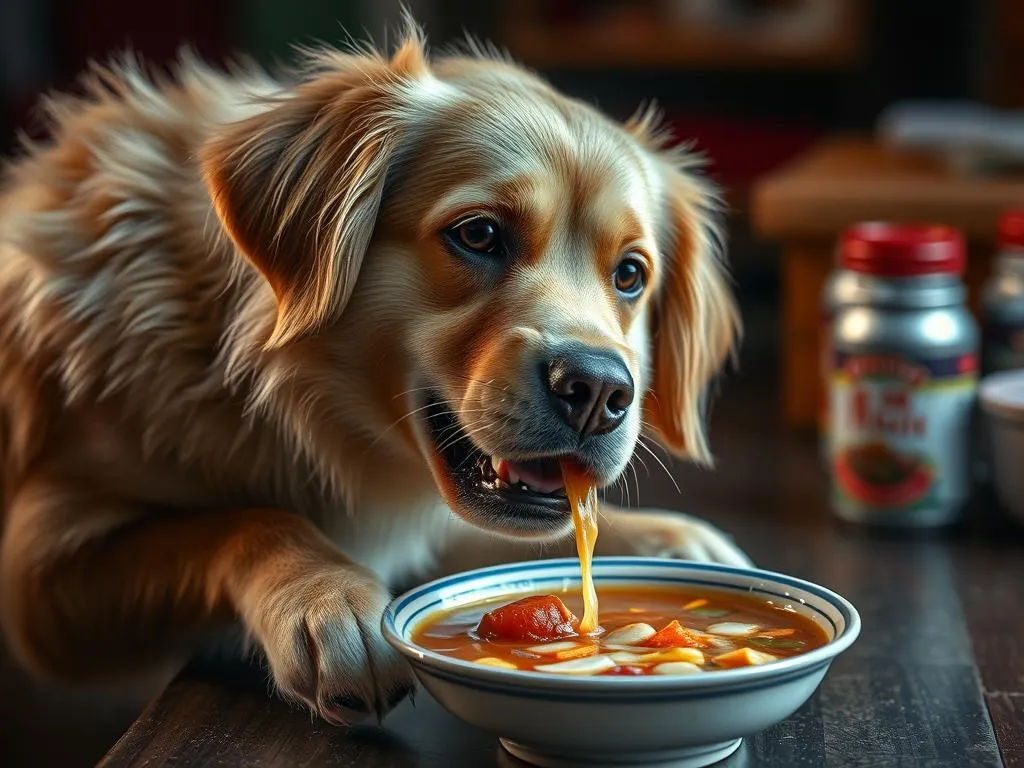
Introduction
When it comes to dog nutrition, understanding what our furry friends can and cannot eat is crucial for their health and well-being. Dogs require a balanced diet that meets their specific nutritional needs to thrive. With the increasing trend of humanizing pets, many dog owners find themselves wondering about the safety of various human foods for their canine companions.
One such food that has gained popularity is miso soup, a traditional Japanese dish known for its savory flavor and nutritional benefits. But the pressing question remains: Can dogs eat miso soup? In this article, we will delve into canine nutrition, examine the ingredients of miso soup, and provide guidance on whether it is a suitable option for dogs.
Understanding Dog Nutrition
The Basics of Canine Nutrition
To fully grasp whether dogs can safely consume miso soup, it’s essential to understand the basics of canine nutrition. Dogs require a balanced diet that includes:
- Proteins: Vital for growth, repair, and overall health.
- Fats: Important for energy and healthy skin and coat.
- Carbohydrates: Provide energy and aid digestion.
- Vitamins: Essential for various bodily functions, including immune health.
- Minerals: Necessary for bone health and several metabolic processes.
A well-rounded diet contributes significantly to a dog’s overall health. It helps maintain a healthy weight, supports a strong immune system, and reduces the risk of chronic diseases.
Common Human Foods and Dogs
As we explore the relationship between dogs and human foods, it’s critical to establish general guidelines. Some human foods are safe for dogs, while others can be harmful or even toxic.
Human food can vary widely in safety depending on its ingredients. For example, while cooked lean meats are typically safe, chocolate, grapes, and onions can pose serious health risks. The key is to approach feeding human food to dogs with caution, ensuring that any additions to their diet are both safe and nutritious.
Miso Soup: Ingredients and Nutritional Value
What is Miso Soup?
Miso soup is a traditional Japanese soup made from miso paste, which is fermented soybeans, and dashi, a broth typically made from seaweed and fish. It’s often enriched with various ingredients, such as tofu, scallions, mushrooms, and seaweed, making it a flavorful and nutrient-dense dish that has cultural significance in Japan.
Nutritional Analysis of Miso Ingredients
Understanding the nutritional content of miso soup’s ingredients is crucial in determining its suitability for dogs. Here’s a breakdown of some common ingredients:
-
Miso Paste: Rich in protein, vitamins, and minerals, miso paste is known for its probiotic properties. However, it is also high in sodium, which can be a concern for dogs.
-
Tofu: A good source of protein and low in fat, tofu is generally safe for dogs. However, some dogs may have soy allergies.
-
Seaweed: This ingredient can offer health benefits, including vitamins and minerals. Still, it should be given in moderation due to potential iodine content.
-
Scallions and Garlic: Common in many miso soup recipes, these ingredients are toxic to dogs and should be avoided.
-
Mushrooms: While some mushrooms are safe, others can be toxic. It’s best to err on the side of caution.
In summary, while some miso soup ingredients have health benefits, others can pose risks to dogs, particularly concerning sodium levels and potential allergens.
Can Dogs Eat Miso Soup?
Assessing the Ingredients
To determine whether dogs can eat miso soup, we must evaluate each ingredient’s safety:
-
Miso Paste: While miso can provide some nutritional benefits, the high sodium content poses a risk. Excess sodium can lead to sodium toxicity in dogs, resulting in symptoms like vomiting, diarrhea, and even more severe complications.
-
Tofu: Generally considered safe for dogs, but monitor for allergic reactions. Small amounts can be beneficial, but moderation is key.
-
Seaweed: Can be beneficial; however, excessive consumption may lead to iodine toxicity.
-
Scallions and Garlic: Both are toxic to dogs and should never be included in any dog diet.
-
Mushrooms: Avoid unless you can confirm they are safe. Some types can be toxic.
Overall, miso soup can be problematic due to its sodium content and the inclusion of potentially harmful ingredients.
The Impact of Miso Soup on Dog Health
Feeding dogs miso soup may have some benefits in small amounts, such as the probiotic effects of miso. However, the risks associated with feeding miso soup to dogs generally outweigh the potential benefits.
-
Sodium Toxicity: Dogs are more sensitive to sodium than humans. Excessive sodium intake can lead to severe health issues, including hypertension and kidney strain.
-
Digestive Issues: Changes in diet can upset a dog’s stomach, leading to diarrhea or vomiting.
Recommended Serving Sizes and Preparation Tips
If you choose to share a taste of miso soup with your dog, consider the following tips:
-
Portion Size: Keep it minimal—just a spoonful of broth without any toxic ingredients.
-
Homemade Dog-Friendly Version: Create a dog-safe version by using low-sodium miso paste and omitting harmful ingredients like garlic and onions. Use plain broth and add dog-safe vegetables like carrots and peas.
-
Monitor for Reactions: Always watch for any adverse reactions when introducing new foods to your dog’s diet.
Alternative Nutritional Options for Dogs
Healthy Homemade Dog Treats
If you’re looking to treat your dog with something special, consider making homemade dog treats. Here are a couple of simple recipes:
- Peanut Butter and Banana Biscuits:
- 1 ripe banana
- 1 cup whole wheat flour
- 1/2 cup peanut butter (unsweetened, xylitol-free)
Mix ingredients, roll into small balls, flatten, and bake at 350°F for 15 minutes.
- Pumpkin Dog Treats:
- 1 cup canned pumpkin (plain, not spiced)
- 2 cups whole wheat flour
- 1 egg
Combine ingredients, roll out, cut into shapes, and bake at 350°F for 20-30 minutes.
Commercial Dog Food and Treats
Choosing high-quality commercial dog food and treats can ensure your dog receives balanced nutrition. Look for products that list meat as the first ingredient and are free from fillers and artificial additives.
When selecting dog treats, opt for those that align with your dog’s dietary needs and avoid those with harmful ingredients.
Conclusion
In conclusion, while the question of can dogs eat miso soup can be answered with a cautious “yes” in very limited quantities and with careful ingredient management, the potential risks generally outweigh the benefits. Dogs require a balanced, species-appropriate diet, and while sharing human food can be tempting, it’s essential to prioritize their health.
Always consult with a veterinarian regarding your pet’s diet to ensure you are making informed decisions. Moderation and knowledge are key when it comes to feeding dogs human food.
FAQs
- Can dogs eat miso paste?
-
Miso paste contains high levels of sodium, which can be harmful to dogs. It should be avoided or given in very small amounts.
-
What to do if a dog accidentally consumes miso soup?
-
Monitor for symptoms such as vomiting or diarrhea. If your dog exhibits any concerning signs, contact your veterinarian.
-
Are there any dog-safe soup recipes?
- Yes! Consider preparing a simple broth made from boiled chicken or beef bones without added salt, onions, or garlic, enriched with dog-safe vegetables.
By being informed about what foods are safe for dogs, pet owners can ensure their beloved companions lead healthy, happy lives.









